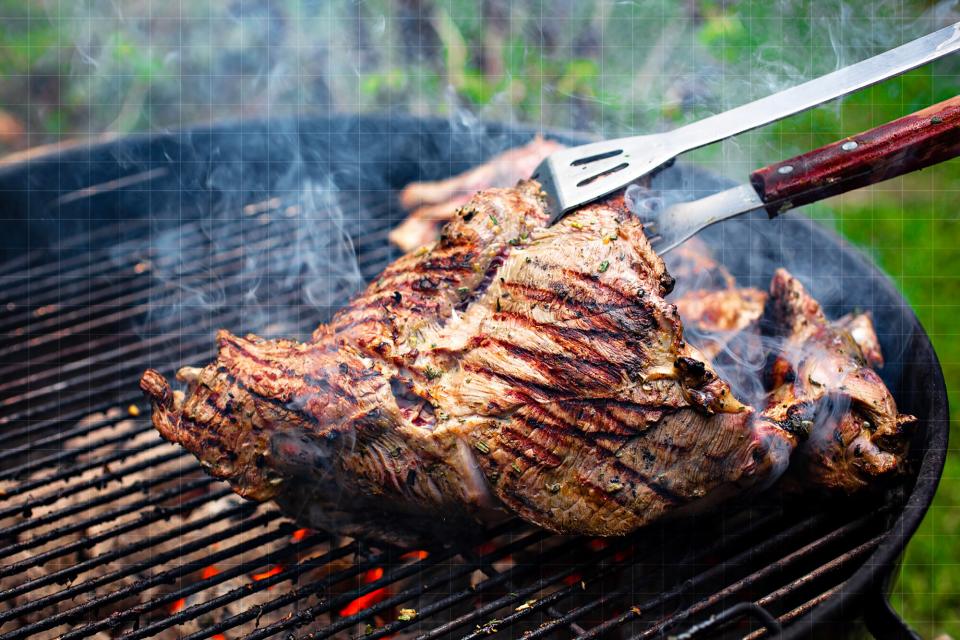Is Grilled Meat Bad for You?
Grilling may be a summertime staple, but there are health concerns associated with firing up the BBQ. Namely: cancer risk. The worry stems from the discovery that barbecued meats can form two chemicals—heterocyclic amines (HCAs) and polycyclic aromatic hydrocarbons (PAHs)—which have been shown in lab studies to alter DNA in a way that increases the odds of developing various forms of the disease—including breast cancer. The first, HCAs, are found in the char on meats cooked over an open flame. (High temps create a reaction between amino acids, sugars and creatine in muscle.) PAHs occur when fat drippings fall onto hot coals or heating elements and create smoke—which then rises up, causing the chemical to cling to your food. Some human studies have found an association too. A meta-analysis published in the journal Nutrients showed that the more HCAs and PAHs participants ate over time, the higher their risk for colorectal adenoma—the benign precursor to colorectal cancer.

Andrew Scrivani
But the National Cancer Institute points out that human studies have been mixed, and no definitive link between exposure to PAHs and HCAs from grilled meat and cancer has been established. That's in part because the amount of these chemicals you might consume from a piece of barbecued chicken or seared steak is "1,000-fold lower than what animals are exposed to in lab studies," says Cynthia Rider, Ph.D., an environmental toxicologist at the National Institute of Environmental Health Sciences Division of the National Toxicology Program. In these trials, scientists used high doses so that they were sure to see an effect—like a tumor—that they could study. So the levels are nowhere close to what would be in the food you eat.
However, diet is still considered the No. 1 source of PAHs among nonsmokers (cigarette smoke is also a major producer of these chemicals), says Diana Rohlman, Ph.D., a toxicologist at Oregon State University who studies PAHs in the air. But the good news, she adds, is that there are simple ways to minimize your exposure. Choosing leaner cuts of meat, for example, means less fat will drip down and create PAHs. Raising the grill grates farther above the flames, if you can, also reduces the formation of this chemical. Continually rotating the meat limits heat exposure and may decrease HCA formation, as well, according to the NCI. One way to reduce both PAH and HCA consumption from meat, Rohlman says, is to not eat any super-blackened spots, where these compounds are concentrated. Finally, there is some evidence that marinating your meat may help. A 2019 study in Food Chemistry found that marinating chicken wings in beer reduced the production of PAHs in the meat. Another 2020 trial showed marinades significantly limited the formation of HCAs. Researchers believe this is due to the antioxidant properties in marinades like these.
Bottom Line
There's no hard evidence linking PAHs and HCAs on grilled meat with an increased cancer risk, though it can't hurt to take steps to minimize your exposure. And as with anything, moderation is key. Rider and Rohlman agree that if you grill one night, maybe lean on another cooking method for a couple of days. Now, where are those tongs?

